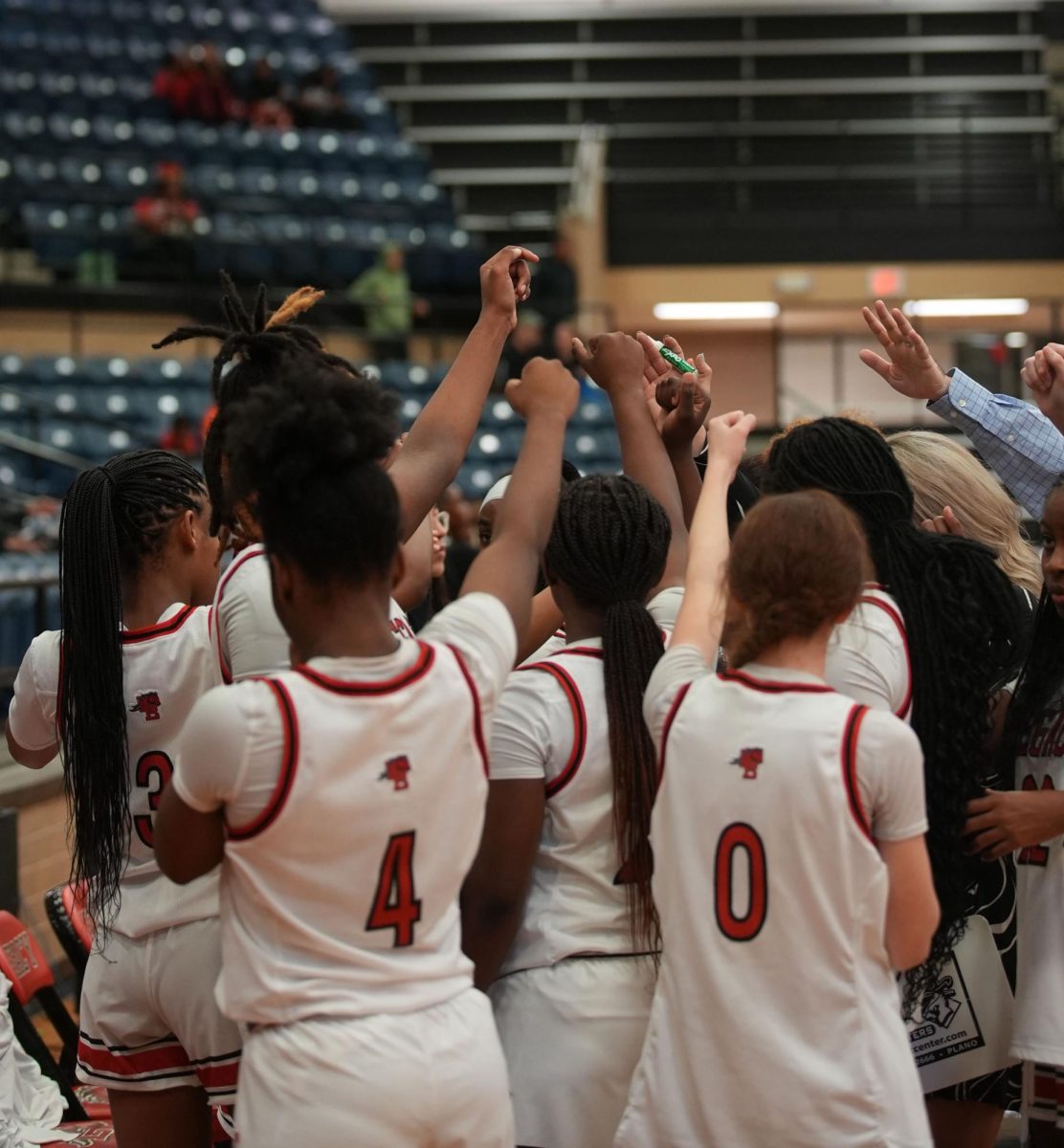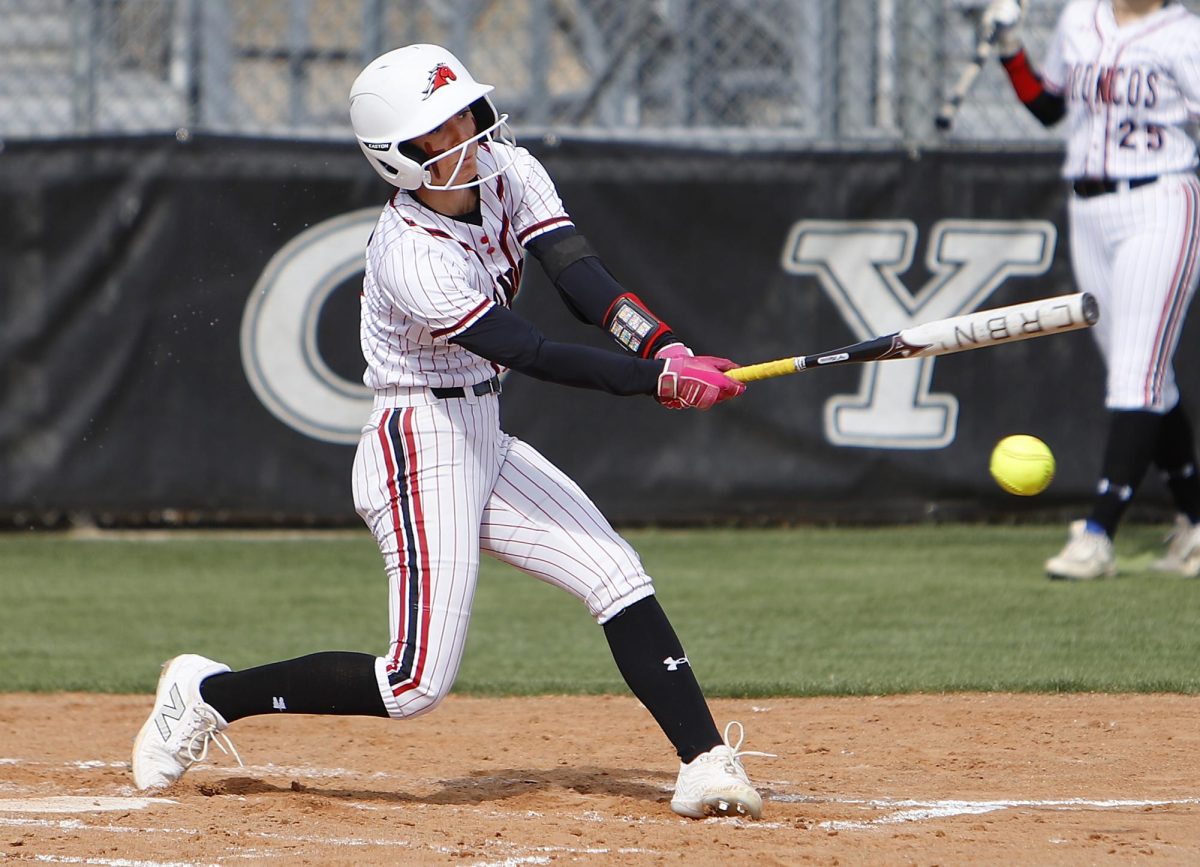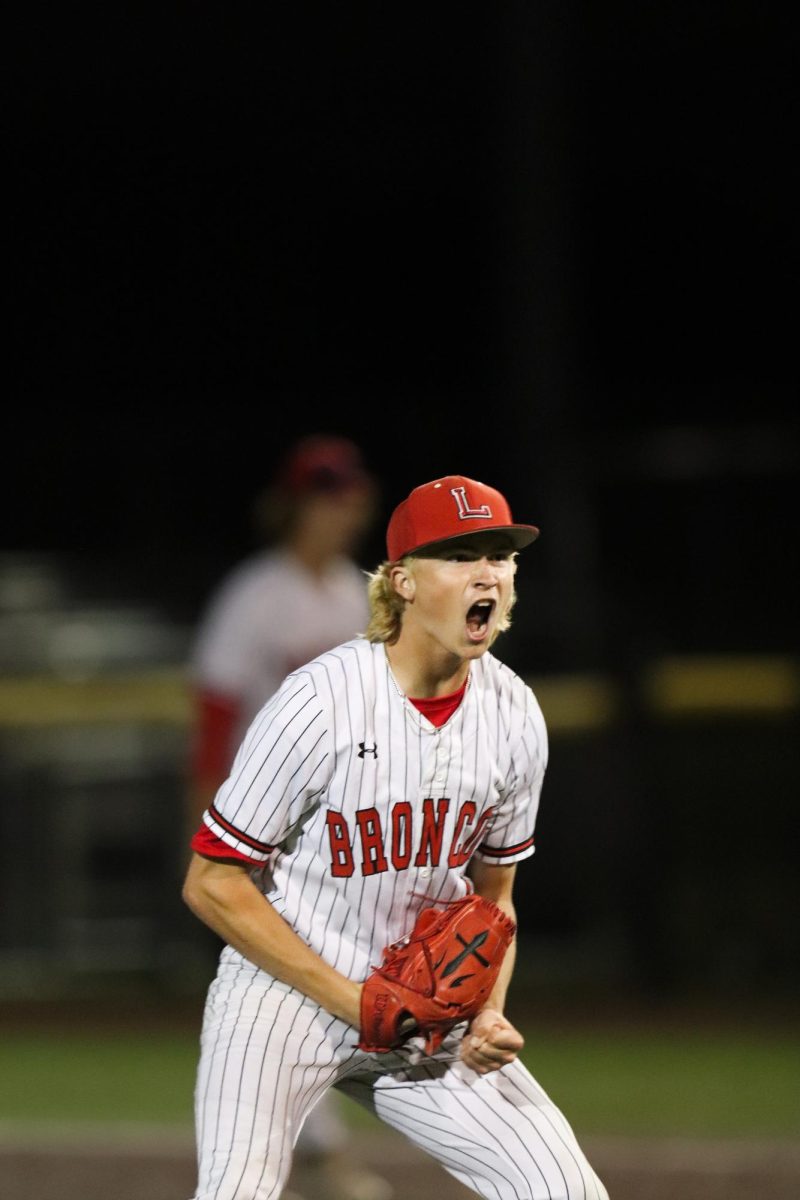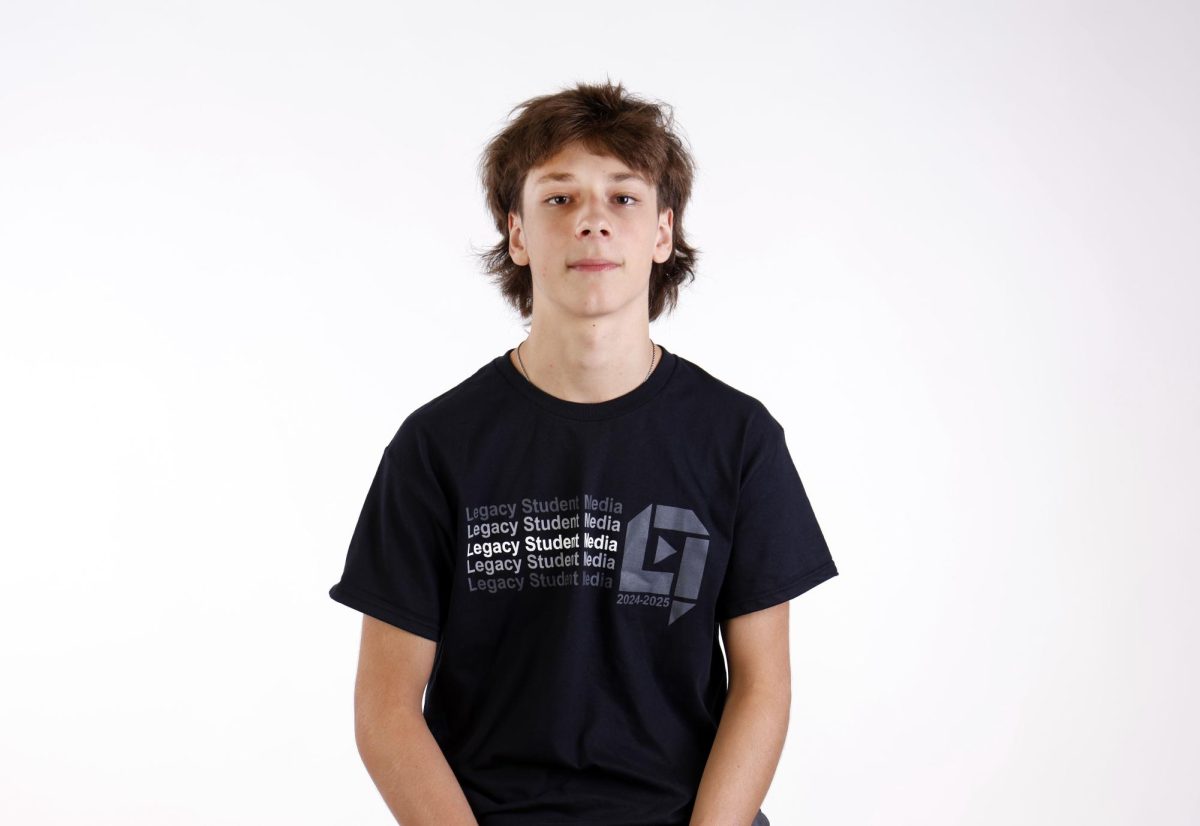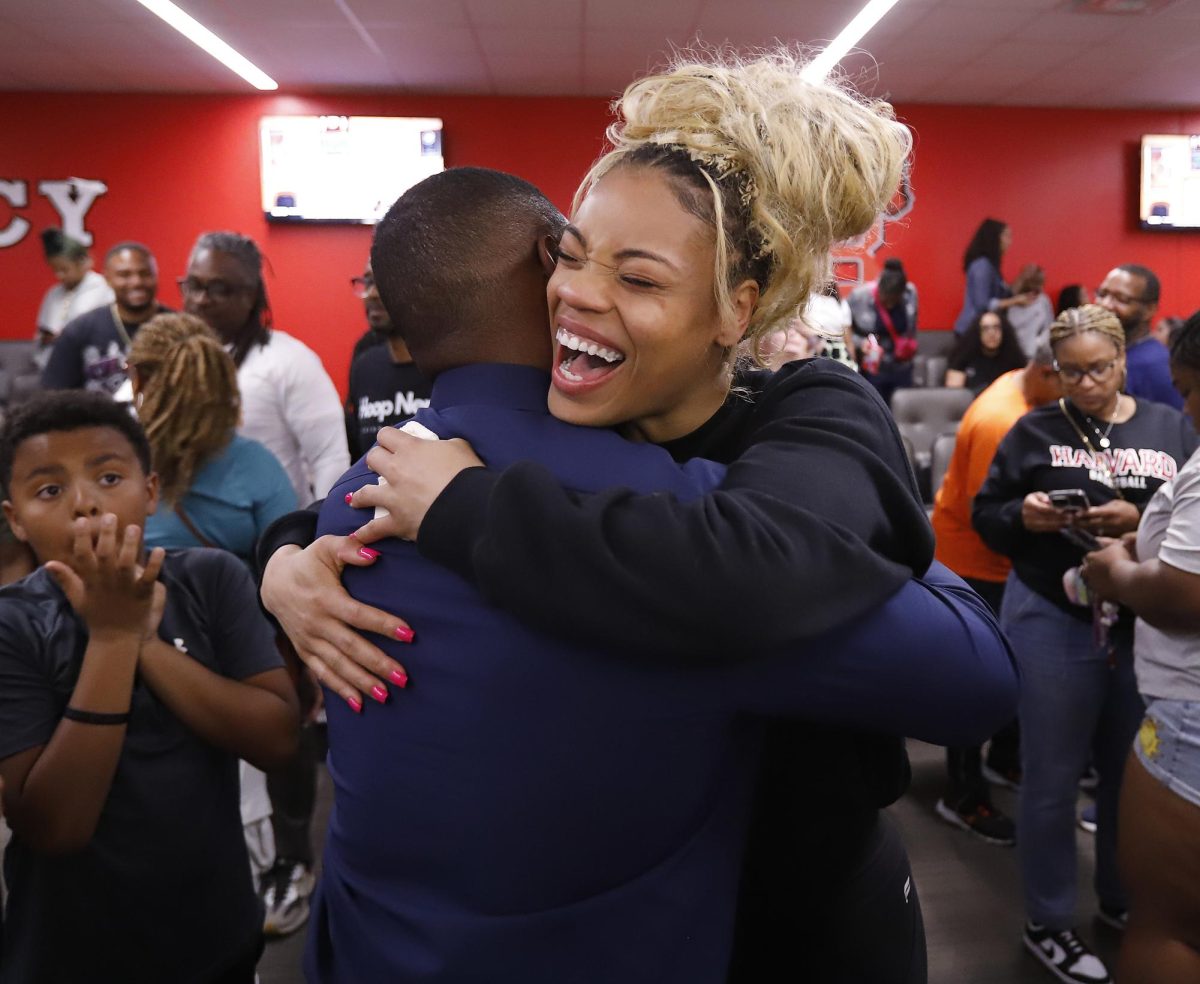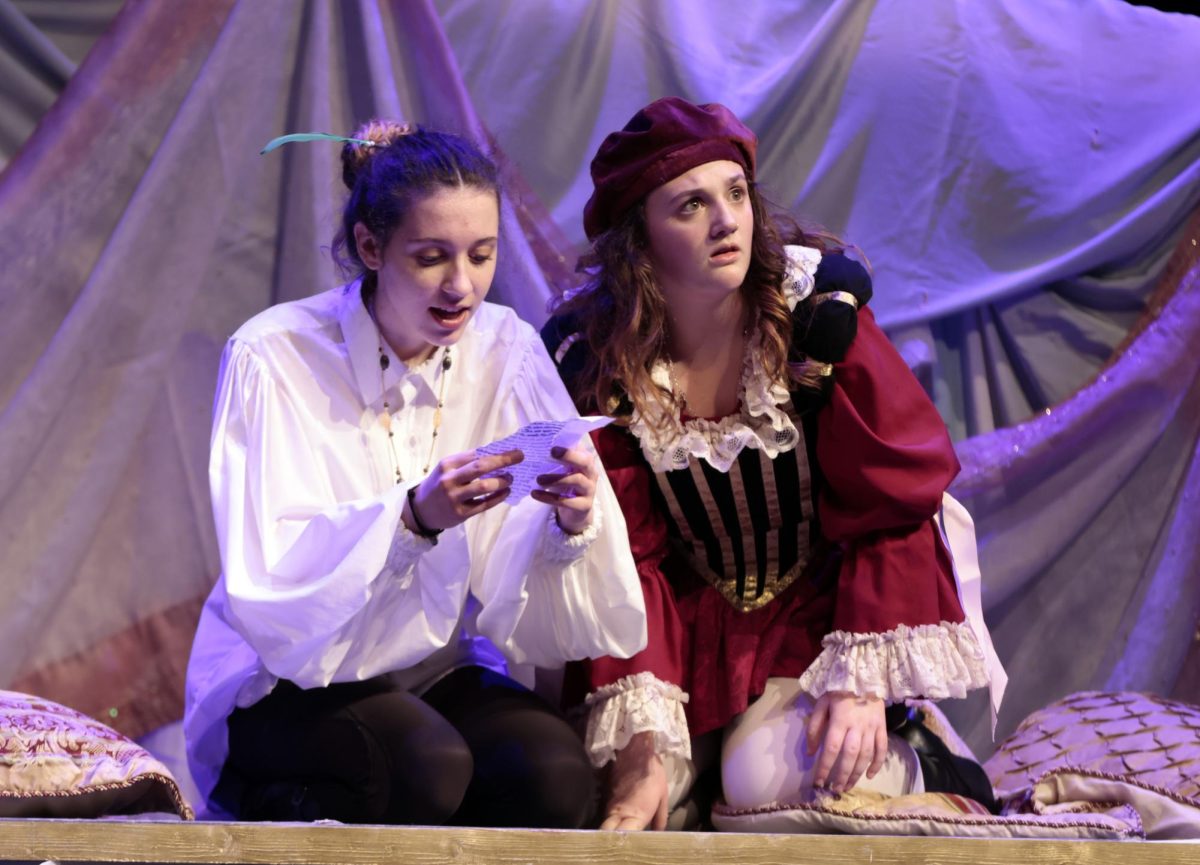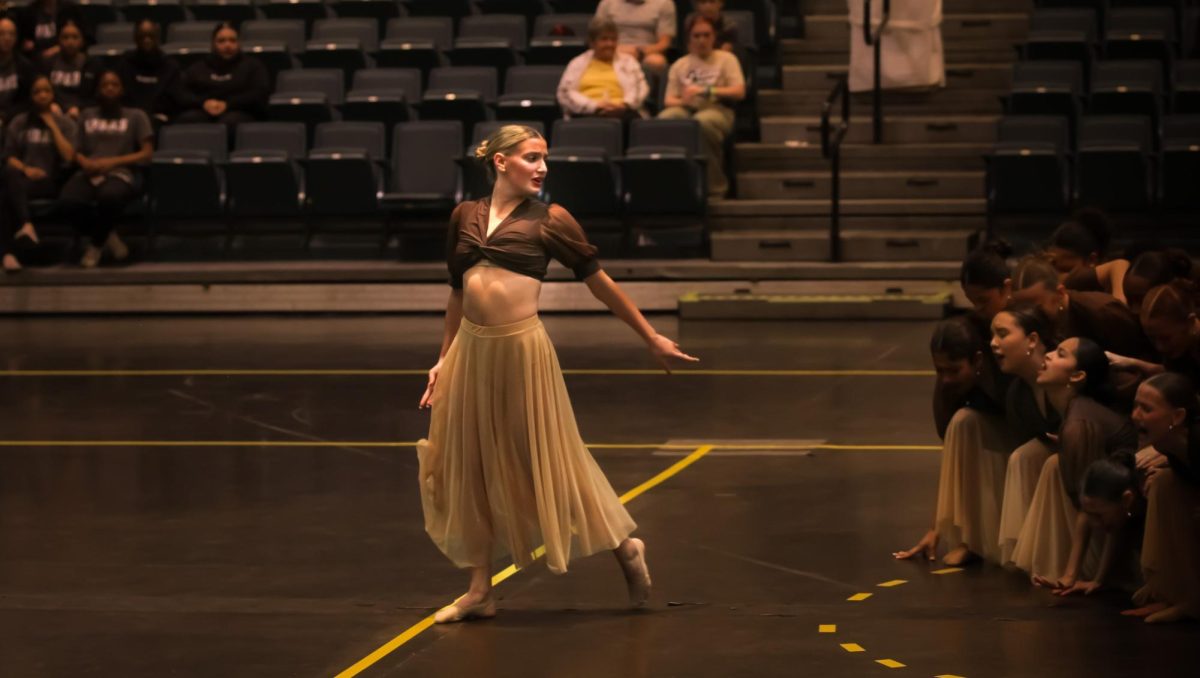Brooklyn Handy sits in the service box of the tennis courts. Coach Noah Newton kneels down behind her, bracing her back and head. Handy’s eyes vacantly stare ahead, her vision blurs, she cannot remember where she is.
Head tennis coach, Chad Redwine, sees the commotion, and heads to her side. He informs the two confused Wakeland High School girls the match is over. The game was only halfway done. Handy’s health was more important than a win.
“I play tennis because I enjoy it,” Handy said. “I don’t want to be restricted from anything because of a health condition.”
Wakeland’s Co-head Athletic Trainer, Mathu Allen, is called for by walkie-talkie. He arrives shortly after and checks her pulse. Coach Newton and Coach Allen brace Handy as she struggles to walk towards her chair set up on the opposite side of the court. She stumbles, repeatedly stepping on her own feet. She can’t make it. Coach Newton calmly tells me to grab her chair. I run across the courts and set her red foldable chair behind her. She sits down and begins to recover.
Coach Allen pours ice-cold water from Handy’s jug into her hands which she proceeds to rub on her face. While she attempts to cool down he routinely checks her pulse, rubs water on her arms and asked her how she felt. A rolling chair is brought to the court and she is rolled into the nurse’s office.
“[After Handy’s team was forced to forfeit the match] I was hoping my partner and the team wouldn’t be mad at me for having to stop,” Handy said.
While in the the nurse’s office, Coach Allen had Handy sip water while he monitored her body temperature. To keep her cooled down, Coach Allen rubbed a wet towel over her arms and legs.
“At first I still didn’t understand what was happening,” Handy said. “After a few minutes I started to feel better and wanted to get back outside.”
Handy was diagnosed with severe migraines. She also suffers with a drop in blood pressure when exercising which, in more serious cases, causes her to faint. She has had open-heart surgery because of an abnormal origination of the right coronary artery when she was eight years old. Handy considers herself lucky because doctors sometimes diagnose the problem too late. Without surgery her life expectancy was 20 years old. Handy refuses to let her medical problems stop her from playing the sport she loves.
“I play tennis because it’s a fun sport that you can always get better at,” Handy said. “My favorite part used to be winning tournaments, but now I love being able to hit for fun with a partner.”




